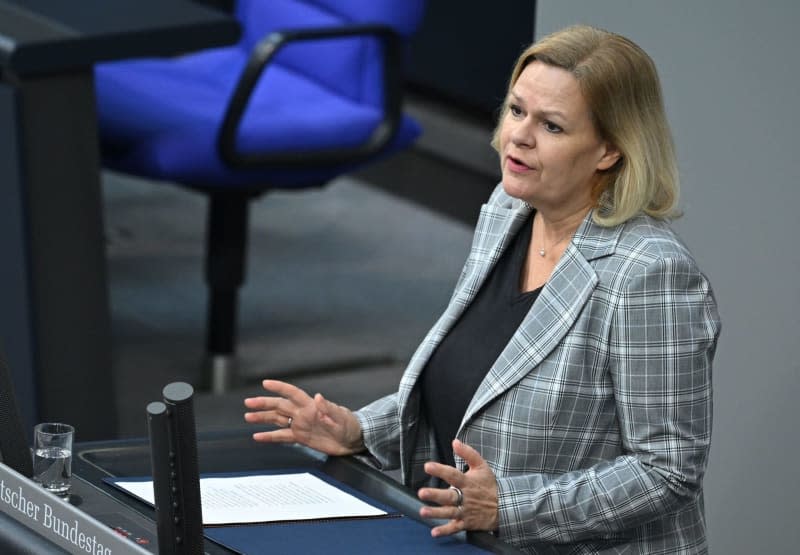Authority: German political parties at greater risk of cyberattacks

German political parties and political actors are currently exposed to a particularly high number of cyberattacks, according to the Federal Office for Information Security (BSI).
"Particularly in light of the upcoming European elections, it can be assumed that there is currently an increased number of attacks," a spokeswoman for the authority told dpa.
The BSI and the domestic intelligence service have current information on phishing attacks by a state actor against German parties, among others.
So-called hack-and-leak attacks, in which non-public data or documents are captured and then published - sometimes manipulated or falsified - are to be expected in particular. The new modus operandi increases the cyberthreat to the targets in focus.
The BSI does not comment on details of current cases, the spokeswoman said.
Interior Minister Nancy Faeser said that such attacks are not only a problem for those directly affected, but also aim to shake confidence in democracy.
"We know that this is above all part of the Russian regime's toolbox of hybrid threats," Faeser told dpa on Thursday. It must be expected that captured data will be falsified and used for "massive disinformation campaigns."
Six weeks ago, the domestic intelligence service and the BSI warned the parties of the danger of possible hack-and-leak operations in the 2024 election year. In the letter, which is available to dpa, the security authorities warned against taking such cyberattacks lightly.

